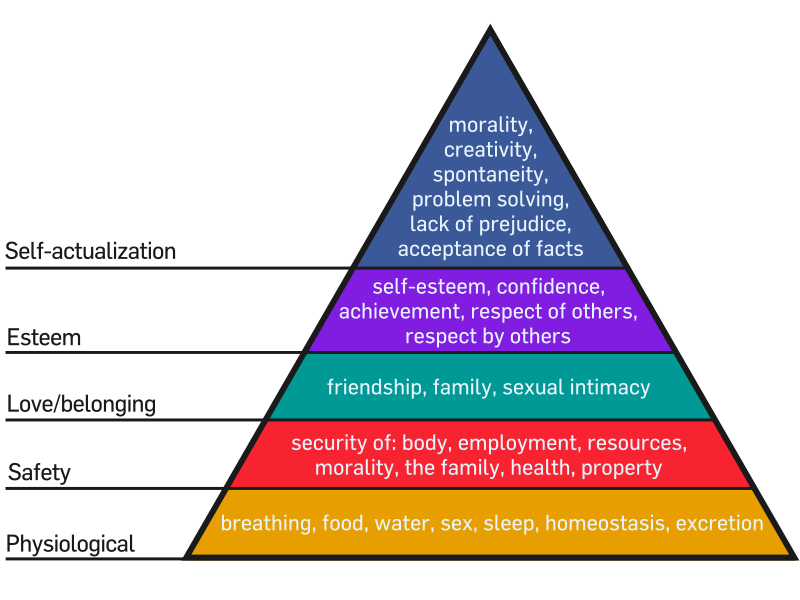Can you only be satisfied after being unsatisfied? Can you only feel the euphoria of satisfying a need or desire if you’ve been experiencing the strain of that need or desire? For the basic needs of the human animal, the answer to these questions is an undeniable yes. It’s only refreshing to chug water if you were first dying of thirst. It’s only appetizing to devour pizza if you were first starving. It’s only relieving to use a toilet—if you were about to pee your pants. Pretty obvious stuff there. Drinking or eating when you’re already stuffed or saturated does not add to your satisfaction, and will more likely reduce it. The thing I wanted to ponder was how far this extends. What else in life—whether more universal or self-important—makes people happy? Is the happiness or fulfillment achieved in a certain realm only possible if there was first the absence of that satisfaction? The possibilities of this inquiry are infinite. They can range from substantial life-achievement type accomplishments (marriage, wealth, career) to small victories (finding a perfectly fitting pair of pants). But do the same principles apply? Or do they only apply to basic human needs?
It gets more complex when pondering these questions beyond the basic human needs level. For instance, can you only treasure money if you were previously poor? There’s not as direct of a correlation. I think at this point you have to get more general. Or you have to separate between a need and a want. With money, you don’t have to be rich to be happy, that is, as long as you can pay your bills. I still think it is possible to make the general statement that people who achieved wealth from modest beginnings are more likely appreciate and accrue satisfaction from material things than people who’ve known the lavish lifestyle from birth. But again, that’s speculation and would probably have to be judged on an individual by individual basis. I just noticed, right in the middle of writing this, that what I’m essentially doing is going up Maslow’s Hierarchy of Needs. His famous pyramid is below:
Do you have to lack the things on the pyramid to appreciate and enjoy them? Incidentally, I already covered the bottom rungs and came to the conclusion that those things are only satisfying if that desire is in full swing first. That’s what gets interesting when you ascend the pyramid. Is love/belonging or self-esteem and respect only gratifying if you first weren’t loved or respected? I don’t believe so. Can you be loved too much, to where it’s unappealing? Can you be respected by others too much, to where you actually wished you weren’t as highly regarded? Again, I don’t think so. The top of the pyramid gets too indirect and esoteric. It doesn’t logically follow. Only being able to enjoy morality, creativity, or lacking prejudice before not doing those things gets way too convoluted.
To return to my initial pondering from above—how far the “satisfaction only after the lack thereof” inquiry extends—the answer is: not that far. It does primarily pertain to basic human needs for survival. As you move up Maslow’s pyramid, it shifts towards enjoying the fulfillment for what it is and not because it assuages a vital absence. Unless you’re part of a highly ambitious intelligentsia, with achieving wisdom as your life goal, you can’t really desperately lack the top of the pyramid in the first place, so when you achieve it, the experience is purely a positive addition to your quest for satisfaction; its absence doesn’t necessarily harm you.

